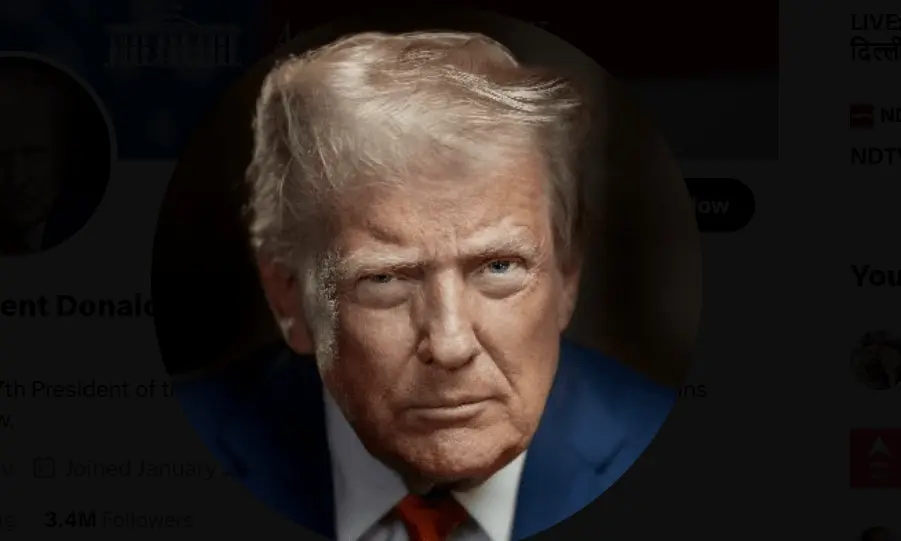
Trump warns Putin of “serious consequences” amid the Russia-Ukraine war, sparking global reactions
A Provocative Statement in a Prolonged War
Trump Warning to Putin – As the Russia-Ukraine war continues to reshape global politics, a new voice has re-entered the fray, U.S. President Donald Trump. In a recent public appearance, Trump issued a stark warning to Russian President Vladimir Putin, declaring that continued aggression in Ukraine would result in “serious consequences.” Though no longer in office, Trump’s words have reverberated across diplomatic circles, reigniting debates about U.S. foreign policy, transatlantic unity, and the future of the conflict.
The war, now stretching into its fourth year, has seen devastating consequences for Ukraine and growing tensions between Russia and the West. While current U.S. leadership has maintained a steady stream of military aid and sanctions, Trump’s reemergence introduces a new layer of unpredictability. His statement, delivered with characteristic bravado, signals a potential shift in tone, one that could influence both domestic politics and international strategy.
But what exactly does Trump’s threat mean? Is it a genuine policy stance or a rhetorical flourish aimed at energizing his base? And how might it affect the already fragile dynamics of the Russia-Ukraine war?
Strategic Implications: Rhetoric Meets Realpolitik
Trump warning to Putin was short on specifics but heavy on symbolism. By invoking “serious consequences,” he positioned himself as a strongman willing to confront authoritarian aggression. This marks a departure from earlier, more ambiguous comments about Russia during his presidency, when critics accused him of being too conciliatory toward the Kremlin.
Now, with the war dragging on and civilian casualties mounting, Trump’s tone has hardened. Analysts suggest several possible interpretations of his statement:
– Military Posturing: Trump could be signaling support for increased U.S. military aid to Ukraine, including advanced weapons systems and intelligence sharing.
– Economic Pressure: He may be advocating for harsher sanctions targeting Russian energy exports, oligarch assets, and financial institutions.
– Diplomatic Isolation: The threat could imply efforts to further isolate Russia on the global stage, cutting off access to international forums and partnerships.
Yet, without concrete policy proposals, the statement remains speculative. Some observers view it as a campaign tactic, designed to contrast Trump’s assertiveness with what he portrays as the current administration’s cautious approach. Others see it as a genuine attempt to influence the trajectory of the war, especially if Trump anticipates a return to power.
Regardless of intent, the message has landed. Russian officials quickly dismissed the remarks as “political theater,” while Ukrainian leaders cautiously welcomed the show of support. The ambiguity of Trump’s leaves threat room for both hope and concern.
Global Reactions: Allies, Adversaries, and the Diplomatic Ripple
Trump’s comments have sparked a wave of international reactions, highlighting the delicate balance of global diplomacy. In Europe, where the war’s impact is felt acutely, leaders responded with a mix of curiosity and caution. NATO officials emphasized the importance of unity, noting that any voice supporting Ukraine’s sovereignty is valuable—but also warning against unilateral statements that could disrupt coordinated efforts.
In Kyiv, President Volodymyr Zelenskyy acknowledged Trump’s remarks, stating, “We welcome strong words against tyranny. But Ukraine needs action, not just rhetoric.” The Ukrainian government has long sought bipartisan support from the U.S., and Trump’s statement despite its vagueness, may bolster morale among both troops and civilians.
China, a key observer in the conflict, remained notably silent. Beijing has maintained a neutral stance, calling for dialogue while avoiding direct criticism of Moscow. Trump’s reentry into the conversation could complicate China’s diplomatic calculus, especially if it signals a more aggressive U.S. posture.
Meanwhile, in Moscow, the Kremlin dismissed Trump’s threat as “irrelevant.” Russian media portrayed the statement as a desperate attempt to regain political relevance, while Foreign Minister Sergey Lavrov warned that “external interference will not deter Russia’s objectives.” The response underscores the entrenched nature of the conflict and the difficulty of shifting its course through rhetoric alone.
Looking Ahead: War, Politics, and the Power of Words
As the Russia-Ukraine war grinds on, Trump’s statement adds a new dimension to the geopolitical landscape. It raises questions about the role of forming leaders in shaping international discourse, the influence of political rhetoric on real-world events, and the future of U.S. engagement in the conflict.
If Trump were to return to office, his approach to Russia could differ significantly from current policy. Would he pursue direct negotiations with Putin? Increase military support for Ukraine? Or adopt a more isolationist stance? The ambiguity fuels speculation and anxiety.
For Ukraine, the priority remains clear: defend its sovereignty, secure international support, and rebuild its war-torn infrastructure. Western unity is essential, and Trump’s comments if followed by concrete action, could strengthen that unity. But if they remain mere words, they risk undermining the credibility of U.S. commitment.
For Russia, the war is both a military campaign and a geopolitical statement. Putin’s strategy hinges on endurance, division among Western allies, and control over narrative. Trump’s threat disrupts that narrative, but whether it alters the strategy remains uncertain.
And for the world, the stakes are immense. The Russia-Ukraine war is not just a regional conflict, it’s a test of international norms, democratic resilience, and the future of global order. Trump’s voice, polarizing as it may be, is part of that test.
Final Thoughts:
In the high-stakes arena of global politics, words can be weapons or empty echoes. Trump warning to Putin may not carry the force of policy, but it carries the weight of influence. Whether it marks a turning point or a fleeting headline, it reminds us that leadership past or present, can shape the course of history.
Also read – Trump 50-Day Ultimatum to Russia Sparks Global Tensions: Oil Sanctions, Peace Demands & a World on Edge
Putin’s Fury Unleashed: Russia Pounds Ukraine with Record Drone Barrage After Trump Call Collapses
2 thoughts on “Trump Warning to Putin: A New Chapter in the Russia-Ukraine Conflict”
Comments are closed.